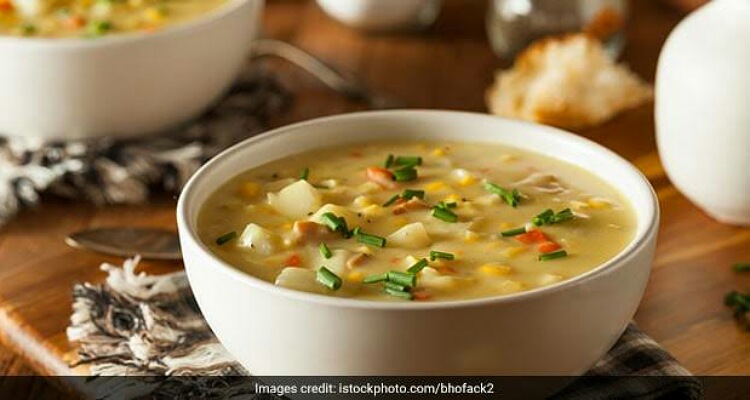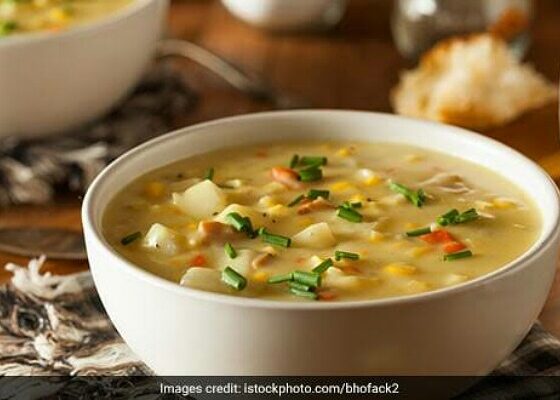Soups are winter foods. They give us warmth and soothe us from within. But it is vital that the food ingredients of soups retain their nutritive value during and after cooking them? How does one ensure it? Nutritionist Nmami Agarwal has shared the secret of preparing a soup without losing it’s nutritive value.
Soups: one of the winter foods
Winter months bring with them a lot of cold and chilly weather. It is a season of common colds and flus. One has to keep oneself warm to avoid catching these viral infections and thus remaining healthy. Warm woolen clothes offer us warmth from outside. But certain foods give us warmth from within and heal us. They soothe us and make us strong. Soups are such winter foods that are delicious and nutritious.

Soups are prepared from vegetables or meat with spices and herbs. They have a lot of nutrition in them. But one has to be careful during the preparation to retain the nutritive value of the soup ingredients. How does one ensure this? Nutritionist Nmami Agarwal has uploaded a video on her Instagram in which she shares and provides tips on cooking soups with its nutrition preserved!
Soup as a meal
The nutritionist stated in her Instagram video that soups can form a meal on their own. They are extremely filling foods. And during the preparation of these soups, one has to first boil the vegetables. During this process, the nutrients and minerals of the vegetables seep out into the water. In order to not lose these nutrients, one should use this same water in preparation of the soup. This will make the soup healthier.
Soups are made also using meat. These too are full of protein and nutrition. They warm the body. Moreover, soups have a lot of spices and nutritious herbs mixed in them. These provide heat to the body and contain a lot of antioxidants and phytochemicals. These mop up the harmful free radicals in the body. These radicals are the causative agents of various chronic and inflammatory conditions of the body including atherosclerosis, heart diseases and cancer.

Other winter foods
Warm milk
Dairy and dairy products are extremely good for the cold months of winter. They have vitamin B complex, protein and calcium. And they avert infection and winter illnesses. But prefer low fat or skimmed milk and low fat yoghurt for health reasons.
Porridge
This is a good breakfast food to start the day. It keeps you energized until lunchtime because it releases energy slowly. Adding toppings of fruits, nuts, seeds can up it’s nutritional value. Dried fruits such as dates or figs are also excellent options for porridge toppings.
Cauliflower and broccoli
These are also great winter food options. These vegetables have a lot of antioxidants that help fight viral illnesses. They contain vitamin C which can increase your immune functions. At times, fresh vegetables might be limited in supply in winter. But frozen cauliflower and broccoli retains it’s nutrition even in these forms.
Root vegetables
These root vegetables such as turnips and carrots are easily available in winter and provide warmth. One can boil them, roast them, grill them or eat them raw. They have vitamin A and C both of which assist in fighting infections.

Read here: What is fishless fish? Advantages and challenges!
Eggs and fish
Both are high in vitamin B12 that improves immunity. They have healthy fats and reduce fatigue and tiredness. They have protein that fill the stomach.
